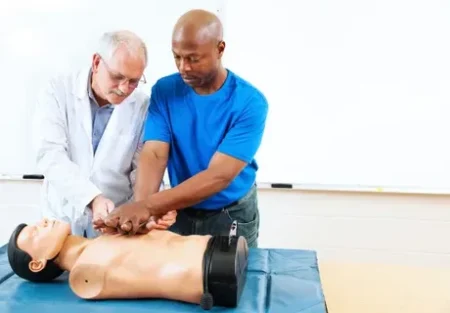A doctor is one of the most respected and essential professionals in society, dedicated to preserving and improving human health. Their role extends far beyond diagnosing and treating diseases; they provide emotional support, educate communities about wellness, and contribute to medical advancements. From general practitioners to specialized surgeons, doctors play a crucial role in maintaining public health.
The Journey to Becoming a Doctor
Becoming a doctor requires years of rigorous education and training. The journey typically includes:
- Undergraduate Education – Aspiring doctors usually pursue a pre-medical degree in biology, chemistry, or a related field.
- Medical School – This phase involves extensive coursework in anatomy, physiology, pathology, and pharmacology, along with hands-on clinical training.
- Internship and Residency – Graduates undergo supervised practice in hospitals, gaining experience in various medical fields.
- Specialization and Licensing – Some doctors pursue further training in specific areas such as cardiology, neurology, or pediatrics, followed by obtaining a medical license to practice.
Different Types of Doctors
Doctors specialize in various fields to address specific health concerns. Some common types include:
- General Practitioners (GPs) – Provide primary healthcare and treat a wide range of conditions.
- Surgeons – Perform medical procedures to repair injuries, remove tumors, or correct deformities.
- Pediatricians – Specialize in the health of infants, children, and adolescents.
- Cardiologists – Focus on heart-related conditions and diseases.
- Neurologists – Treat disorders related to the brain and nervous system.
- Oncologists – Specialize in the diagnosis and treatment of cancer.
The Importance of a Doctor in Society
Doctors are the backbone of healthcare systems worldwide. Their contributions are invaluable in several ways:
1. Saving Lives
Doctors diagnose and treat illnesses, injuries, and medical emergencies, ensuring patients receive proper care to survive and recover.
2. Preventive Care
They educate the public about disease prevention, vaccinations, and healthy lifestyles, reducing the risk of chronic illnesses.
3. Medical Research and Innovation
Doctors participate in research and clinical trials, leading to medical breakthroughs that improve treatment methods and life expectancy.
4. Mental Health Support
Apart from physical ailments, doctors also address mental health issues, providing counseling and treatment for conditions like depression and anxiety.
Challenges Faced by Doctors
Despite their noble profession, doctors face numerous challenges, including:
- Long Working Hours – Many doctors work long shifts, often sacrificing personal time to care for patients.
- Emotional and Physical Stress – Dealing with critical cases, patient losses, and emergencies can be overwhelming.
- Legal and Ethical Issues – Doctors must navigate complex ethical dilemmas, patient confidentiality, and legal regulations.
- Medical Advancements – Keeping up with rapidly evolving medical technology and treatments requires continuous learning.
Conclusion
The role of a doctor is indispensable in society. Their dedication to saving lives, advancing medical science, and promoting public health makes them heroes in their own right. Although their profession comes with immense responsibilities and challenges, the impact they make on individual lives and communities is profound. Aspiring doctors must be prepared for a lifelong commitment to learning, compassion, and service to humanity.









